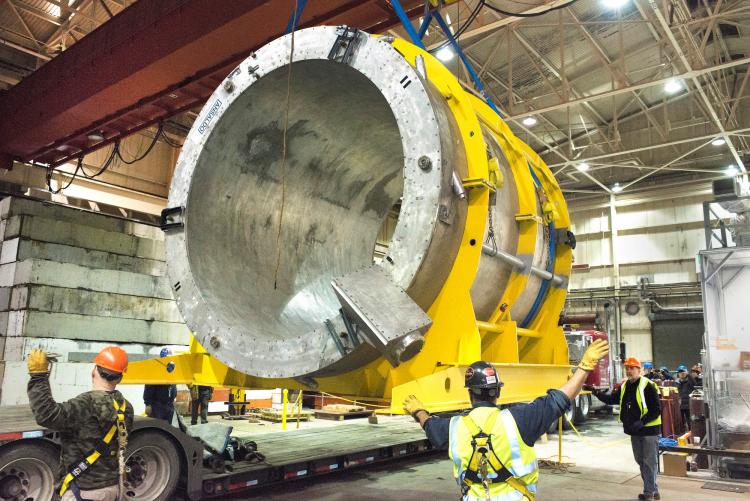Brookhaven National Laboratory Receives Approval for Upgraded sPHENIX Detector

Brookhaven National Laboratory has announced that the U.S. Department of Energy recently granted "Critical Decision-Zero" (CD-0) status to the sPHENIX project, a proposed upgrade of the PHENIX detector at the Relativistic Heavy Ion Collider (RHIC). This decision paves the way for building a ground-breaking research tool which would have "unprecedented precision for tracking subatomic interactions."
CU Physics Professors Jamie Nagle and Dennis Perepelitsa are research leaders in the new sPHENIX project, and Prof. Nagle previously served as a Co-Spokesperson of the PHENIX detector, which completed its data-taking mission in June 2016. Charged with exploring the interactions between the smallest building blocks of matter, PHENIX parsed collision data from RHIC to study the properties of the quark-gluon plasma, a four-trillion degree primordial soup of fundamental particles thought to have existed microseconds after the
creation of the universe.
The sPHENIX detector will be a significant upgrade to the original PHENIX project. It utilizes a superconducting solenoid magnet repurposed from the Stanford Linear Accelerator Center (SLAC), along with state-of-the-art charged-particle-tracking detectors and new electromagnetic and hadronic calorimeters to greatly enhance the experimental capabilities sPHENIX, allowing it to measure particle jets produced in collisions at RHIC with unparalleled precision and speed.
The solenoid magnet that will form the core of the sPHENIX detector

